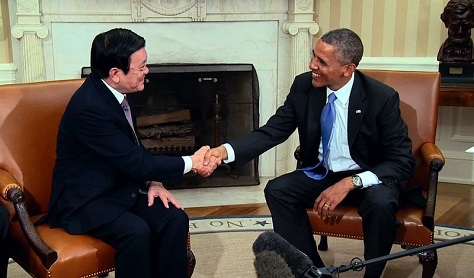
There are a lot of reasons to be cynical about the Trans-Pacific Partnership.![]()
![]()
Like most multilateral trade deals, it seems to bring with it all of the ‘warts and barnacles’ that always seem to accompany these kinds of trade deals:
- Complex enforcement mechanisms (like ISDS) sometimes seem to threaten to override national sovereignty.
- Agreements too often fail to address poor labor and environmental standards in the developing world and, when they do, enforcing more equal standards is difficult.
- Ignoble compromises over intellectual property force higher prices for life-saving drugs throughout the developing world and benefit Hollywood at the expense of locally produced culture.
- In a globalized world where the World Trade Organization reduced many tariffs to nearly zero over the last half-century, free trade deals too often fail to liberalize non-tariff barriers to trade, at least to the extent that proponents might prefer, especially in the most highly protected industries like agriculture and services.
Hillary Clinton, who often championed the TPP when she served as the Obama administration’s secretary of state, came out against the trade deal last week, citing the protections for pharmaceutical companies and the lack of mechanisms that deal with potential currency manipulation. Those are odd reasons, though, as many analysts have noted, and her opposition comes after sustained support for the trade deal when she was in office. If anything, the protections for drug companies are far lower than those companies sought (just five to eight years of protection instead of the 12 years that the United States originally wanted). Moreover, currency manipulation has never particularly been an issue of focus in multilateral trade deals, and it’s doubtful that the US government could have won any serious concessions on currency, even if it tried.
Generally speaking, even if you dislike the TPP’s ‘warts and barnacles,’ there’s still a strong theoretical basis for freer trade. But there’s an even more important reason to support the TPP.
Vietnam.
No country stands to gain more from the benefits of free trade and liberalization than Vietnam. As Tyler Cowen eloquently wrote in April for Marginal Revolution:
It has large numbers of state-owned enterprises, and its policies toward such enterprises could use more transparency and predictability, as indeed TPP would bring. Most generally, Vietnam is not today a free country. Bringing Vietnam into TPP would further ensure their attachment to a broadly liberal global trading order. TPP also would bring free(r) labor unions to Vietnam.
Other analysts agree, and there’s a growing consensus that Vietnam will be among the top winners if TPP becomes a reality. With tariffs on garments and footwear set to fall to zero under the TPP, Vietnamese exports will get a boost in the United States at the expense of China and even other free-trade partners like Mexico, because labor costs are still lower in Vietnam. That will help Vietnam maintain its advantage for low-cost manufacturing, even as multinational companies look to even lower labor costs in Laos and Cambodia. Moreover, despite challenges ahead, a widely cited analysis by the Petersen Foundation identified Vietnam as the country with the most to gain from the TPP:
Vietnam would face significant challenges in implementing an agreement that requires stringent disciplines in areas such as labor and government procurement. It also faces tough challenges in maintaining a macroeconomic environment that permits adjustment and encourages long-term investments. But overall, Vietnam’s participation in the agreement is well-founded.
TPP will, accordingly, increase the diversity of Vietnam’s trading partners and reduce its economic reliance on China. When the Obama administration talks about the benefits of TPP in strategic or even military terms, this is one of the most important points — TPP will lessen China’s hold on the southeast Asian economy, at least in the short term, both to the benefit of countries like Vietnam (as well as Malaysia and even more developed countries like Japan and Singapore).
Greater trade between the United States and Vietnam, and greater trade between Vietnam and the European Union, pursuant to another free-trade agreement concluded earlier this year, is expected to increase foreign direct investment in Vietnam, which could help develop a more high-tech and services-based economy and a more educated workforce.
Moreover, arguably no country in the world has suffered more at the hands of US incompetence during a war that today seems as pointless as it was brutal. From the My Lai massacre to carpet-bombing and the gratuitous use of napalm, the US-led war in Vietnam in the 1960s and the 1970s didn’t even accomplish its goal of keeping south Vietnam free of communism. The Cold War mentality at the time skewed the nature of Ho Chi Minh’s original struggle, initially more about self-determination and nationalism than about communist ideology. No one today would argue that the war was worth the sacrifices of US forces, the South Vietnamese or the North Vietnamese.

With TPP, the United States has a chance to ameliorate some of those harms. It was Clinton’s husband who restored normal relations with Vietnam in 1995, and it was Republican George W. Bush who facilitated Vietnam’s WTO entry in 2007. Pulling Vietnam, through TPP, into the global mainstream economy is the next logical step in reducing poverty in a country that’s growing at an estimated 6% this year, and Goldman Sachs, for example, predicts that the Vietnamese economy will surge from $186 billion (the world’s 55th largest) to $450 billion by 2025, making it the world’s 17th largest.
Continue reading One reasons for Americans to support TPP? Absolving US sins in Vietnam.